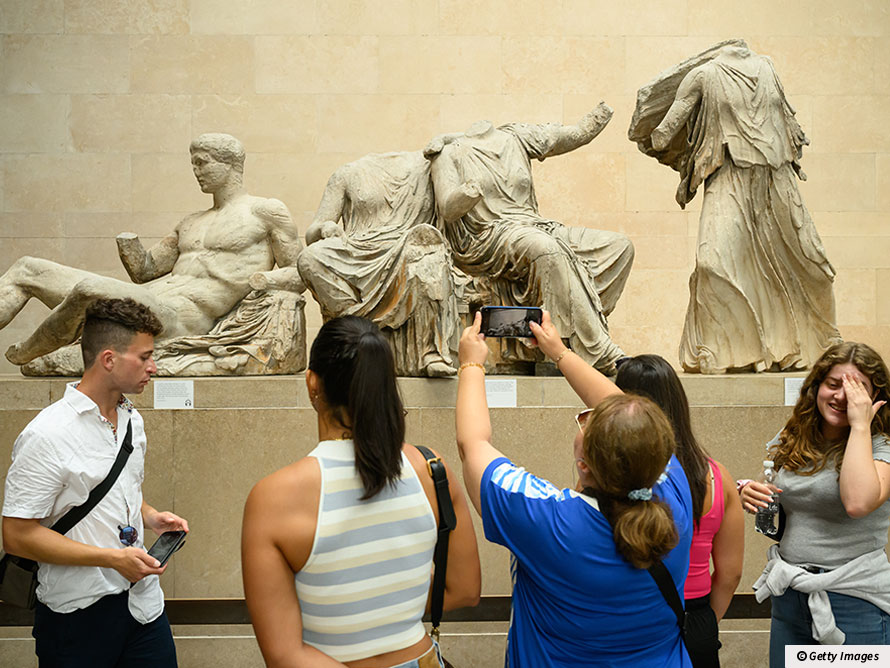Should the Parthenon Marbles go back to Greece? More than two centuries after they were first taken, the sculptures are still causing deep political rifts both abroad and at home.
UK accused of ‘cutting the Mona Lisa in half’
 Acropolis now: The Greek PM said the request was about “reunification not ownership”.
Acropolis now: The Greek PM said the request was about “reunification not ownership”. Glossary
Diplomatic - Non-violent peacekeeping. Diplomatic means keeping good relations between the governments of different countries.
Kyriakos Mitsotakis - The Greek prime minister since June 2023.
Ottoman - A member of the Turkish dynasty that ruled the Ottoman Empire.
Justified - Having a good reason for doing something.
Botched - Gone wrong.
Artefacts - Items made by humans, especially ones of historical interest.
Xi Jinping - The president of China, who has concentrated power and removed term limits allowing him to serve for life.
Arrogant - Thinking very highly of oneself.
Connivance - Willingly being involved in an illegal or immoral act.
